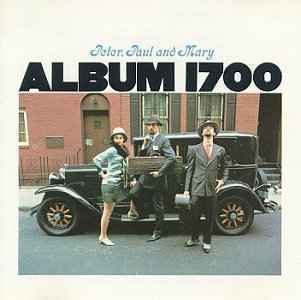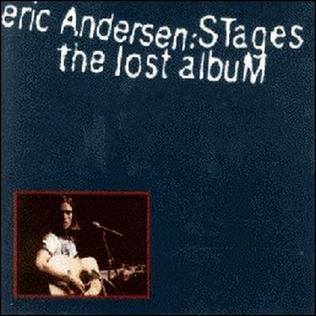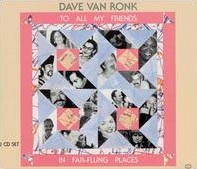
Philip David Ochs was an American protest singer and songwriter who was known for his sharp wit, sardonic humor, political activism, often alliterative lyrics, and distinctive voice. He wrote hundreds of songs in the 1960s and 1970s and released eight albums.

Alferd Griner Packer, also known as "The Colorado Cannibal", was an American prospector and self-proclaimed professional wilderness guide who confessed to cannibalism during the winter of 1874. He and five other men had attempted to travel through the San Juan Mountains of Colorado, during the peak of a harsh winter. When only Packer reached civilization, he said that he had been abandoned by his party, but eventually confessed that the party had resorted to forced cannibalism of dead members to stay alive when they became lost. He later recanted this story, and confessed to having singularly lived off the flesh of his companions, during his snowbound state – after they had fallen victim to party member Shannon Bell, whom Packer said he shot in self-defense. He confessed to having used their flesh to survive, while stranded and during his trek out of the mountains, nearly two and a half months later.
Agnes "Sis" Cunningham was an American musician, best known for her involvement as a performer and publicist of folk music and protest songs. She was the founding editor of Broadside magazine, which she published with her husband Gordon Friesen and their daughters.

All the News That's Fit to Sing was Phil Ochs's first official album. Recorded in 1964 for Elektra Records, it was full of many elements that would come back throughout his career. It was the album that defined his "singing journalist" phase, strewn with songs whose roots were allegedly pulled from Newsweek magazine. It is one in a long line of folk albums used to tell stories about everyday struggles and hardships.

Sings For Broadside, alternatively known as Broadside Ballads, Vol. 10, was a 1976 compilation of songs that Phil Ochs had recorded for Broadside Magazine as demonstration recordings or at benefit shows for them. Initially, Ochs had hoped for the magazine to release one single concert, but when the material he presented to them came up far too short for a full LP and not featuring several of his best and well-known numbers, he suggested they splice on whatever they desired. The result was this album, which featured tracks recorded between about 1965 and about 1973.

A Toast to Those Who Are Gone is a 1986 compilation album of recordings that Phil Ochs made in the early to mid-1960s, mostly between his contracts with Elektra Records and A&M Records. In line with recordings made on the former, Ochs espouses his left-leaning views on civil rights on songs like "Ballad of Oxford", "Going Down To Mississippi" and "Colored Town", his views on worker's rights on "No Christmas in Kentucky", his attack on the American Medical Association on "A.M.A. Song", and the unwilling hero on the title track.

Sixty Six to Timbuktu is an album featuring the history of the career of Robert Plant, from 1966 to a recording done at the Festival in the Desert in Mali. The album was released in 2003 and contains songs from Plant's eight solo albums up to the time of its release on its first disc, and rarities on its second disc. Some of his well-known songs were omitted from this release, such as "Burning Down One Side", "Moonlight in Samosa", "Slow Dancer", "Other Arms", "In the Mood", and "Hurting Kind ".

Eric Andersen is an American folk music singer-songwriter, who has written songs recorded by Johnny Cash, Bob Dylan, Judy Collins, Linda Ronstadt, the Grateful Dead and many others. Early in his career, in the 1960s, he was part of the Greenwich Village folk scene. After two decades and sixteen albums of solo performance he became a member of the group Danko/Fjeld/Andersen.

Album 1700 is the seventh studio album by American folk music trio Peter, Paul and Mary, released in 1967. It produced the band's most successful and final hit, a cover of the John Denver composition "Leaving on a Jet Plane". The album peaked at number 15 on Billboard magazine's Top LP chart and was nominated for a Grammy Award in the Best Folk Performance category. Album 1700 was so named because its original LP issue was Warner Bros. Records catalog number W-1700 for the mono version and WS-1700 for the stereo version. It stayed on the charts and rose again in 1969, thanks to the single release of "Leaving on a Jet Plane".

Happy Traum is an American folk musician who started playing music in the 1950s and became a stalwart of the Greenwich Village music scene of the 1960s and the Woodstock music scene of the 1970s and 1980s. For several years, he studied blues guitar with Brownie McGhee, who was a big influence on his guitar style. Happy is most famously known as one half of Happy and Artie Traum, a duo he began with his brother. They released several albums, including Happy and Artie Traum, Double Back, and Hard Times In The Country. He has continued as a solo artist and as founder of Homespun Music Instruction.

Fifth Album was an album by Judy Collins, released in 1965. It peaked at No. 69 on the Billboard Pop Albums charts.

Stages is an album by folk rock musician Eric Andersen. The album was recorded in late 1972 and early 1973, as the intended follow-up to Andersen's successful Blue River album, but before it could be released, the master tapes were somehow lost in the Columbia vaults. It wasn't until 1990 that the tapes were discovered, at which time the album was finally released. In addition to the original 1972–73 recordings, Andersen included three newly recorded songs. Guest musicians from the 1973–73 sessions included Leon Russell on organ, piano and guitar, Rick Danko on bass and background vocals, and Garth Hudson on accordion, with Dan Fogelberg and Joan Baez supplying background vocals. Shawn Colvin was a guest vocalist on the 1990 sessions.
"Oxford Town" is a song written by American singer-songwriter Bob Dylan in 1962. It was recorded in Columbia's Studio A on December 6, 1962, for his second album, The Freewheelin' Bob Dylan.

To All My Friends in Far-Flung Places is a 1994 album by Dave Van Ronk, the theme of which was to perform versions of songs written by people he knew.

'Bout Changes 'n' Things Take 2 is a 1967 album by Eric Andersen and was released on the Vanguard Records label. It is nearly the same album as his previous release, with changes in the song sequencing and the addition of additional instruments.

What's That I Hear?: The Songs of Phil Ochs is a 1998 tribute compilation to the music of the late Phil Ochs. The various performers cover several generations of Ochs' admirers. All profits from the album's sales were divided equally between the non-profits, the ACLU Foundation of Southern California and Sing Out! Magazine.

The discography of Phil Ochs, a U.S. protest singer and songwriter, consists of seven studio albums, six live albums, six compilation albums, one box set, six other albums, and nine singles.

Boston Music Hall, 12/5/72 is an album by the country rock band the New Riders of the Purple Sage. It was recorded live on December 5, 1972, at the Music Hall in Boston, Massachusetts, and released on November 11, 2003. It was the second complete New Riders concert that was recorded in the 1970s and released in the 2000s as an album on the Kufala Recordings label.

On My Way is a 2010 album of previously unreleased Phil Ochs performances, originally recorded in 1963 by Roy Connors of The Highwaymen.















